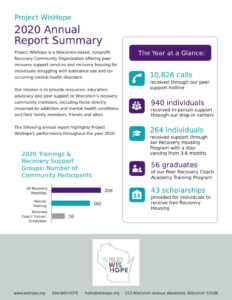Recovering from alcohol and/or substance use disorder is a process of trial and error. Even those who have managed to uphold a sober lifestyle for years may feel the temptation more strongly on some days, for reasons unknown. Working to establish a functional relationship with individuals in recovery entails enduring these ups and downs. If you or someone you know is struggling with relapse, take a breath, and remember to prioritize your own health first and foremost.
Relapsing can feel like a failure on several fronts — falling short of self-imposed expectations, letting down loved ones, and the general numbing of emotions coincides with most users who relapse. The toll this takes on feelings of self-worth can be the most detrimental to both addicted individuals and their close relationships. Rebuilding self-confidence requires a surprising amount of legwork and relapsing can be a gut punch to this process. Despite the stigma associated with relapse, overcoming the ensuing frustration, pain, and depression can prove essential to getting back on track.
How people respond to relapse is more essential to recovery than relapsing in and of itself. For the support system of individuals coping with addiction, take care of yourself first. Rushing to reprimand or attempting to heal anyone from the fallout of relapse might be detrimental in the long run. Relapsing is traumatic for many who experience it. Without studying, practicing, and implementing mental health strategies for healing trauma, the effects are simply out of any one person’s control. For those who are confused or concerned about a loved one relapsing, here are some helpful strategies for taking care of your own wellness before addressing the relapse itself.
SETTING BOUNDARIES AND RESPONSIBILITY
Use disorder is a brutal and unforgiving disease, sneaking up when least expected. Setting boundaries on relationships can help establish a plan of action for when those who are struggling with the disorder relapse. However, for those who have set boundaries, following through can be a separate matter altogether.
- What is at stake? If a loved one relapses, determining how a relapse will affect the relationship’s dynamic beforehand empowers both parties to reflect on their limits. Clearly outlining how a relapse would impact the fundamental constructs of a relationship makes it easier to follow through with any next steps.
- What do you want out of your relationship? There are two sides to each relationship — be it intimate, familial, platonic, etc. — and the two sides might not want or expect the same treatment from each other. Checking in with this sentiment early and often can act as a benchmark for anyone struggling to discern their priorities during a relapse. The temptation to fall back on using blurs intentions and responsibilities for all.
- Which of these “wants” can you provide for yourself? The most difficult aspect of setting boundaries in any relationship is acknowledging what you can take on, what you can let go of, and what is set in stone. Following a relapse, the healthiest response is to find methods of self-soothing that also promote mental wellness. Staying mindful about the pain and letdown of a transgression like relapsing while simultaneously providing for your own needs sends a message of acceptance and confidence.
TAKE THE TIME AND SPACE NEEDED
Self-care is not selfish, so asking for time and space should be free of guilt and self-criticism. Yes, at a certain point problems should be addressed, but feeling anxiety about important life decisions is usually a cause for rushing into premature choices. In fact, the onset of anxious pressures to act immediately indicates a person’s over-attentiveness to a challenge in their life — in this instance, relapse.
Individuals who have relapsed might struggle with self-worth and depression, requiring the attention of trained mental health professionals as well as the time it takes to just feel good about oneself again. Relapsing collapses the fragile structures of trust we place in ourselves and others. Rebuilding does not take place overnight.
Those in relationships with someone who has relapsed may feel frustrated beyond belief, wanting to have conversations, arguments, and even shouting matches. Unfortunately, alcohol and/or substance use disorders are not cured by any of these courses of action. Taking the potential energy that relapsing coagulates — such as anxiety, stress, and disappointment —and redirecting them into positive channels fortifies personal empowerment while prioritizing personal well-being. Activities like physical fitness, art, or volunteering allow for time and space away from the environment of relapsing and can provide an invaluable perspective.
Sobriety, relapse, treatment, recovery — this cycle can take a toll, and not just on those living with alcohol and/or substance use disorder. The friends and families of individuals coping with addiction often go through the wringer of optimism, trust, and disappointment. Watching those we love deal with the real weight of this disorder from one moment to the next may fill us with empathetic tinges of pain, caring, and longing — a longing to have the experience of a single day free from the mental strain of use disorder. Don’t be afraid of setting boundaries to establish the time and space you need to be the best version of yourself. Because ultimately, that is the best assistance someone with this condition can receive. At WisHope, we understand that the road to recovery is a life-lasting pursuit, and we aim to provide you the tools and resources to do this, long after your stay at our treatment facilities or recovery homes. Don’t wait to get help — call today at (844) 947-4673.


